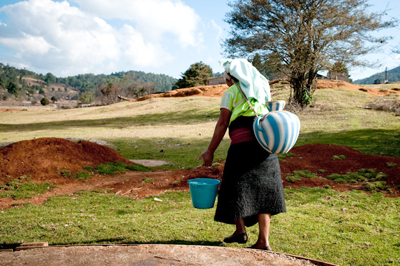World Water Day
Message by the Secretary-General of the United Nations, Ban Ki-moon.

As the world charts a more sustainable future, the crucial interplay among water, food and energy is one of the most formidable challenges we face. Without water there is no dignity and no escape from poverty. Yet the Millennium Development Goal target for water and sanitation is among those on which many countries lag the most.
In little over a generation, 60 per cent of the global population will be living in towns and cities, with much of the increase taking place in the inner city slums and squatter settlements of the developing world. The theme of this year's observance of World Water Day -- "Water for Cities" -- highlights some of the main challenges of this increasingly urban future.
Urbanization brings opportunities for more efficient water management and improved access to drinking water and sanitation. At the same time, problems are often magnified in cities, and are currently outpacing our ability to devise solutions.
Over the past decade, the number of urban dwellers who lack access to a water tap in their home or immediate vicinity has risen by an estimated 114 million, and the number of those who lack access to the most basic sanitation facilities has risen by 134 million. This 20 per cent increase has had a hugely detrimental impact on human health and on economic productivity: people are sick and unable to work.
Water challenges go beyond questions of access. In many countries, girls are forced to drop out of school owing to a lack of sanitation facilities, and women are harassed or assaulted when carrying water or visiting a public toilet. Moreover, the poorest and most vulnerable members of society often have little choice but to buy water from informal vendors at prices estimated to be 20 to 100 per cent higher than that of their richer neighbours, who receive piped city water in their homes. This is not just unsustainable; it is unacceptable.
Water problems will figure prominently at the forthcoming UN Conference on Sustainable Development in Rio de Janeiro, in 2012 - Rio + 20. My High-level Panel on Global Sustainability and UN-Water are examining ways in which we can connect the dots among water, energy and food security, with the aim of reducing poverty and inequality, generating jobs, and minimizing the risks of climate change and environmental stress.
On World Water Day, I urge governments to recognize the urban water crisis for what it is - a crisis of governance, weak policies and poor management, rather than one of scarcity. Let us also pledge to reverse the alarming decline in pro poor investment in water and sanitation. And let us reaffirm our commitment to ending the plight of the more than 800 million people who, in a world of plenty, still do not have the safe drinking water or sanitation they need for a life in dignity and good health.
Ban Ki-moon
Secretary-General
United Nations